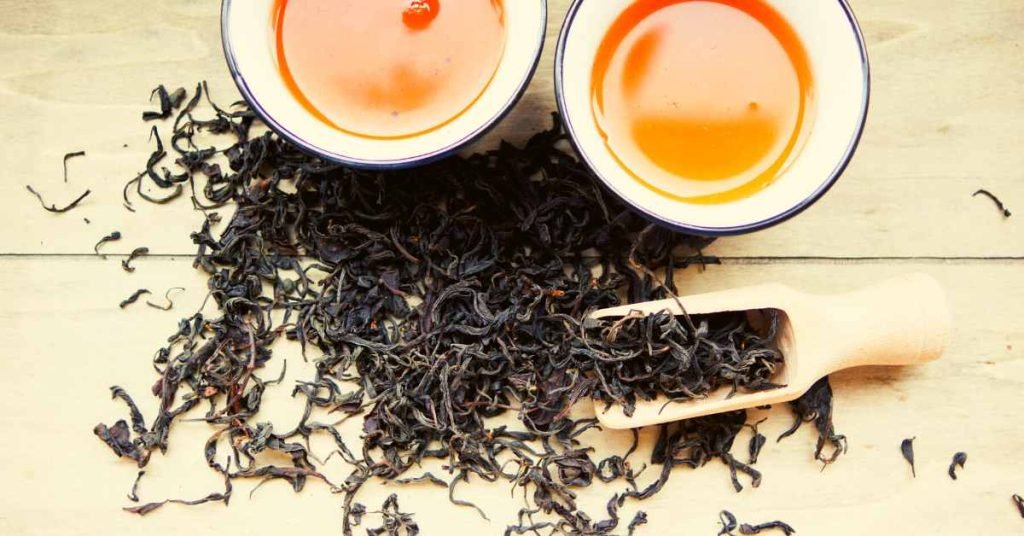In the realm of tea, few beverages can boast the rich history and worldwide popularity of black tea.
As one of the most consumed types of tea globally, black tea has enchanted tea enthusiasts for centuries with its robust flavor, distinctive aroma, and enticing dark hue.
But how exactly is black tea processed, and what makes it so beneficial to our health?
Join us on a journey through the captivating world of black tea as we uncover the intricate steps of its processing and explore the myriad of health benefits it offers.
The Processing of Black Tea

1. Plucking and Withering: The journey of black tea begins in the lush tea gardens, where skilled harvesters delicately pluck the top two leaves and a bud from the tea plant, scientifically known as Camellia Sinensis.
These tender leaves are then spread out on large trays or racks to wither under controlled temperature and humidity.
The withering process reduces the moisture content of the leaves, making them supple and more amenable to further processing.
2. Rolling: Once withered, the tea leaves undergo the rolling process, a crucial step that initiates the oxidation process.
The leaves are gently rolled, either by hand or using specially designed machinery, to break down their cell walls and release enzymes.
This enzymatic oxidation, or fermentation, is what distinguishes black tea from other types of teas.
3. Oxidation: After rolling, the leaves are left to oxidize in a climate-controlled environment.

During oxidation, the exposed enzymes react with oxygen in the air, causing a chemical transformation that darkens the leaves and enhances their flavor profile.
The oxidation time varies depending on the desired type of black tea, whether it’s a delicate Darjeeling or a robust Assam.
4. Fixing or Firing: To halt the oxidation process at the desired level, the leaves are subjected to high temperatures through a process known as fixing or firing.
This step deactivates the enzymes responsible for oxidation, preserving the flavor and color achieved during oxidation.
5. Sorting and Grading: Once the fixing is complete, the tea leaves are sorted and graded based on size, appearance, and quality.
Larger, whole leaves are often considered higher grade and prized for their subtlety, while broken leaves are more commonly used in tea bags or for stronger brews.
6. Packaging: The final step involves packaging the sorted tea leaves, which are then ready to be transported to markets around the world, where they will be brewed and savored by countless tea enthusiasts.
Health Benefits of Black Tea

Beyond its delightful taste and aroma, black tea boasts an array of health benefits, making it a popular choice for those seeking to improve their well-being:
1. Antioxidant Powerhouse: Black tea is packed with polyphenols, particularly theaflavins, and thearubigins, which act as potent antioxidants. These compounds help neutralize harmful free radicals in the body while supporting overall cellular health and reducing oxidative stress.
2. Heart Health: Numerous studies have suggested that regular black tea consumption may improve cardiovascular health. The flavonoids in black tea can help reduce blood pressure, improve cholesterol levels, and enhance blood vessel function, promoting heart health and reducing the risk of heart disease.
3. Mental Alertness and Focus: Black tea contains caffeine, although in lower amounts than coffee. This moderate caffeine content can improve mental alertness, concentration, and cognitive function. The best part is that you won’t get any jittery side effects as you usually get when having too much coffee.
4. Gut Health: Black tea is extremely useful when it comes to promoting gut health and the growth of good bacteria, supporting digestive health, and aiding in the maintenance of a healthy gut microbiome.
5. Immune System Boost: The polyphenols in black tea may bolster the immune system, helping the body defend against infections and diseases.
6. Oral Health: Black tea contains fluoride and tannins, which can help combat the growth of bacteria in the mouth and reduce the formation of plaque, thus contributing to better oral hygiene.
Final Word

The allure of black tea extends far beyond its tantalizing taste and captivating aroma.
From the verdant tea gardens to the well-loved teacups, the meticulous processing of black tea transforms delicate leaves into a deeply satisfying brew.
As we’ve explored, black tea is not only a delight for the senses but also a beverage teeming with health benefits.
So, whether you prefer a classic English Breakfast or an exotic Earl Grey, sipping on a cup of black tea can not only be a delightful ritual but also a step towards a healthier and more vibrant life. Cheers to the timeless joy of black tea!
MEDICAL DISCLAIMER
Itsnevernotteatime.com cannot and does not contain medical/health advice. The medical/health information is provided for general and educational purposes only and is not a substitute for professional advice.




